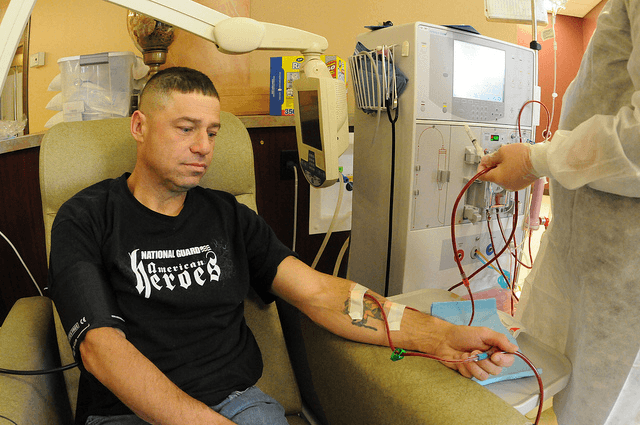Each April marks the celebration of National Donate Life Month, an initiative established in 2003 by Donate Life America and its partnering organizations. The goal is to commemorate those who have received or continue to wait for transplants, as well as the donors who save others’ lives.
According to the United Network for Organ Sharing (UNOS), approximately 123,400 patients are currently on the wait list for life-saving organ transplants, and, on average, 21 people die each day while waiting for a transplant. Thousands of other patients require tissue and eye donations. One person has the ability to save eight lives through an organ donation, while one tissue donor can save up to 50 patients. The organs and tissues that can be donated are:
- heart
- kidneys
- lungs
- liver
- pancreas
- small intestines
- skin
- bone
- corneas
- heart valves
- veins
Registering to become a donor is a relatively quick and easy process. You can register to become a donor when you apply for or renew your driver’s license at your local DMV, but this only pertains to organ and cornea/eye donation, not tissue donation. Regardless of race, pre-existing health conditions, gender, income, age, or social status, anyone can register on the Donate Life America website, where you can specify the organs and tissues you’d like to donate after you’ve passed away. Those under 18 years of age must obtain parental or guardian permission. Organs, tissues, and eyes are evaluated at the time of the donor’s death and given based on factors such as blood type, body size, and distance from the recipient.
Here are some common misconceptions about donating:
Myth: If doctors know that I’m a donor, they won’t try as hard to save my life.
Truth: The number one focus of a doctor when you go into the emergency room is to save your life. Organ donation isn’t even considered until you are extensively declared as brain dead.
Myth: If they know I’m a donor, they’ll declare me dead when I’m still alive.
Truth: The opposite is actually true; organ donors are put through more tests to prove that they are truly deceased than those who are not registered.
Myth: I’m too old/young/unhealthy to register to donate.
Truth: Doctors will evaluate your body parts at the time of death to see if they are eligible for transplant, so don’t dissuade yourself from registering even if you have a history of medical illness or if you consider yourself too old. For those of you who are under 18, parental or guardian consent will allow you to register.
Myth: My family will have to pay to have my organs transplanted.
Truth: At no cost for the donor’s family, the body parts will be transplanted into the recipient. The only cost that the donor will have to pay is the cost for the emergency room and any efforts to save their life. All costs related to the transplant are paid by the recipient.
Myth: The rich or famous buy their way to the top of waiting lists.
Truth: Organ allocation is based on many factors, including blood type, length of time on the waiting list, severity of illness, and other medical criteria.
Myth: My organs will be sold on the black market.
Truth: Selling organs is illegal in the U.S. The process of transplanting goes through many security and health checks, which makes it impossible to smuggle organs or tissues.
To learn about the process of donating body parts, here’s a video created by the Health Resources & Services Administration (HRSA) of the U.S. Department of Health and Human Services.
Featured Image Source: North Dakota National Guard.










